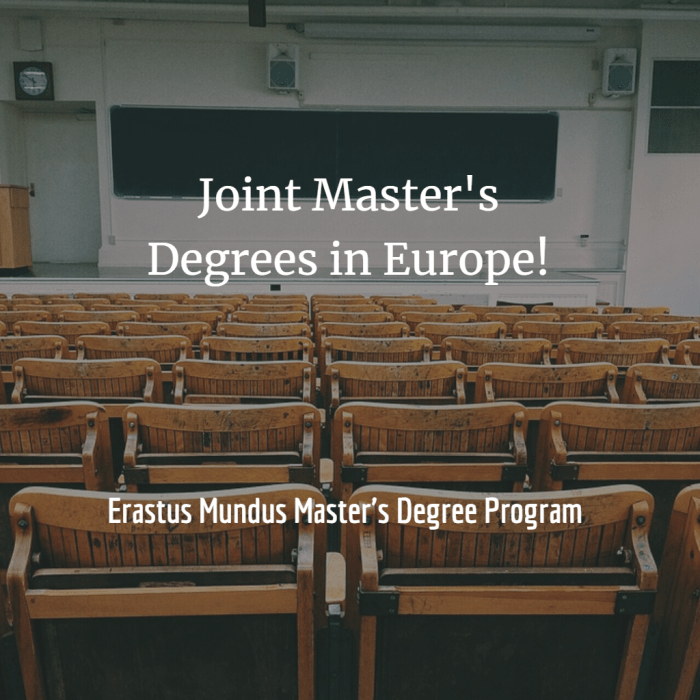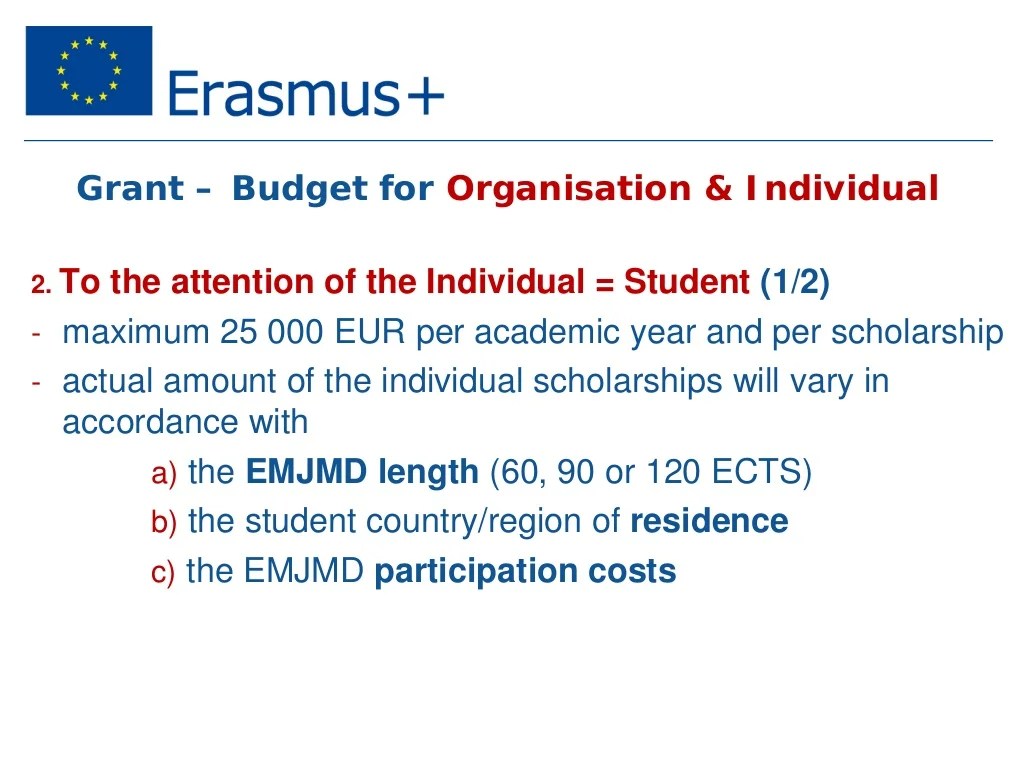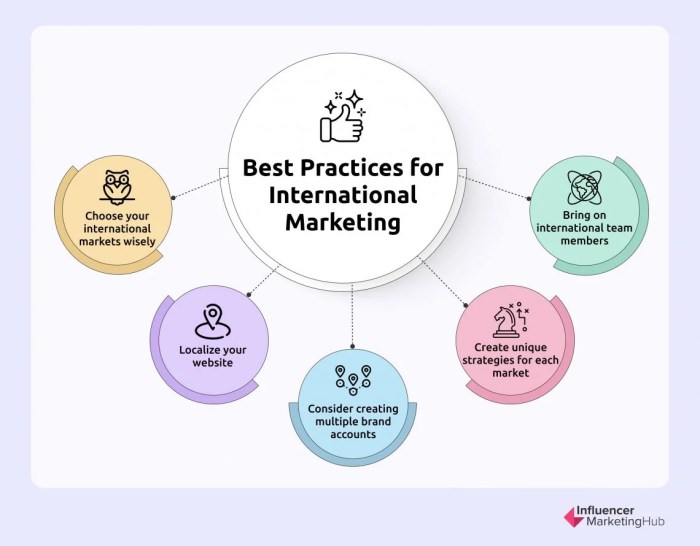With masterdegree at the forefront, this journey into graduate education unveils a world where ambition meets opportunity. In today’s competitive job market, obtaining a master’s degree not only sharpens your skill set but also opens doors to career advancements that can significantly enhance your professional life.
In this exploration, we will delve into the importance of a master’s degree, the various types available, the application process, funding options, and how a master’s can propel your career forward. From detailed statistics showcasing employment rates to an overview of specialized programs, this discussion aims to equip you with the knowledge needed to make informed decisions about your educational path.
Importance of a Master’s Degree
In today’s competitive job market, obtaining a master’s degree has become increasingly crucial for career advancement and personal growth. A master’s degree not only enhances knowledge in a specific field but also demonstrates a commitment to professional development. As industries evolve and the demand for specialized skills rises, having an advanced degree can set candidates apart from their peers, leading to better job opportunities and higher earning potential.The benefits of pursuing a master’s degree extend beyond mere job qualifications.
Master’s programs equip students with advanced skills and competencies that are essential in the modern workforce. Key skills often developed in these programs include critical thinking, advanced research methodologies, leadership abilities, and specialized technical skills relevant to specific industries. This advanced training prepares graduates to tackle complex challenges and contribute effectively to their organizations.
Employment Rates for Master’s Degree Holders
The employment landscape shows a significant disparity between individuals holding a master’s degree and those with only a bachelor’s degree. Statistics indicate that individuals with a master’s degree enjoy higher employment rates and typically command higher salaries. For instance, according to recent data from the U.S. Bureau of Labor Statistics, the unemployment rate for master’s degree holders is considerably lower than for those with a bachelor’s degree.
To illustrate this advantage, consider the following statistics:
- The unemployment rate for individuals with a master’s degree hovers around 2.2%, while those with only a bachelor’s degree face an unemployment rate of approximately 3.7%.
- Master’s degree holders earn, on average, 20% more than their counterparts with just a bachelor’s degree, reflecting the value placed on advanced education by employers.
- Specific fields such as healthcare and engineering demonstrate even more pronounced income gaps, with master’s degree holders earning significantly higher salaries than those with only a bachelor’s degree.
“Investing in a master’s degree can yield substantial returns in terms of both employment stability and financial compensation.”
These statistics highlight the importance of a master’s degree not only as a pathway to higher education but also as a strategic career move in an increasingly complex job market. Employers are actively seeking candidates who possess these advanced qualifications, making a master’s degree a valuable asset in achieving career aspirations.
Types of Master’s Degrees: Masterdegree
Master’s degrees come in various forms, each catering to specific academic and professional goals. From Master of Arts (MA) to Master of Science (MS), and Master of Business Administration (MBA), these programs are designed to enhance knowledge and skills within particular fields. Understanding the nuances between these types can guide prospective students in choosing the right path for their careers.The landscape of master’s degrees is diverse, encompassing traditional programs as well as specialized tracks that meet the evolving demands of the job market.
This section delves into the main types of master’s degrees, along with an exploration of specialized programs and a comparison of traditional versus online curricula.
Overview of Different Types of Master’s Degrees
Master’s degrees can be broadly categorized into several types, each emphasizing distinct areas of study and professional application. The following are the most common types:
- Master of Arts (MA): Generally focused on the humanities and social sciences, this degree often requires a thesis or capstone project, emphasizing critical thinking and research skills.
- Master of Science (MS): Primarily focused on scientific and technical disciplines, an MS degree includes rigorous coursework and often involves research or practical applications in fields like engineering, technology, and health sciences.
- Master of Business Administration (MBA): This professional degree prepares students for leadership roles in business, covering topics such as finance, marketing, and management through case studies and group projects.
- Master of Education (MEd): Designed for educators, this degree focuses on advanced pedagogical theories and practices, often culminating in a project aimed at improving educational outcomes.
- Specialized Master’s Programs: These are tailored to specific industries, such as Master of Public Health (MPH) or Master of Social Work (MSW), providing targeted knowledge and skills for particular roles.
Specialized Master’s Programs and Their Relevance
Specialized master’s programs are increasingly important as industries evolve and require specific skill sets. These degrees are designed to equip students with the knowledge needed for niche careers, often addressing current trends and innovations within their fields. For instance, the Master of Data Science program focuses on analytics, machine learning, and big data applications, preparing graduates for roles in data-driven decision-making across various sectors.
Similarly, the Master of Cybersecurity emphasizes network security, risk assessment, and legal issues surrounding technology, reflecting the growing demand for cybersecurity professionals in an increasingly digital landscape.The relevance of these specialized programs is evident in the job market, where employers seek candidates with specific qualifications tailored to their industry’s needs. By aligning academic programs with market demands, specialized master’s degrees enhance employability and career advancement opportunities.
Comparison of Traditional and Online Master’s Degree Curricula
As higher education increasingly embraces online learning, understanding the differences between traditional and online master’s degree curricula becomes crucial for prospective students. Traditional programs typically involve in-person classes, fostering direct interaction with faculty and peers. Conversely, online programs offer flexibility, allowing students to learn at their own pace while balancing work and personal commitments.Despite these differences, both formats aim to equip students with similar core competencies.
Traditional programs often emphasize classroom discussions, group projects, and hands-on learning experiences, which can enhance networking opportunities and practical application of knowledge. Online programs, however, utilize digital platforms for engagement through discussion boards, video lectures, and virtual collaboration tools.The choice between traditional and online master’s degrees ultimately depends on individual learning preferences, career goals, and lifestyle. Importantly, both formats can lead to the same degree and provide valuable skills applicable in the workforce, making them viable options for advanced education.
The Application Process

Applying for a master’s degree program is a significant step that requires careful planning and organization. Understanding the application process is essential for prospective students who aim to enhance their academic and professional qualifications. This section Artikels the steps involved in applying for a master’s degree, the importance of preparing for entrance exams, and the crucial elements of personal statements.
Steps Involved in Applying for a Master’s Degree Program
The application process for a master’s degree typically involves several key steps. By following these steps, candidates can ensure that they meet all requirements and submit a competitive application.
1. Research Programs
Identifying suitable master’s programs based on interests, career goals, and academic background is crucial. Consider factors such as the program’s reputation, faculty, curriculum, and location.
2. Prepare Required Documentation
In today’s globalized economy, a master international marketing can equip you with essential skills to navigate diverse markets effectively. This program dives deep into consumer behavior, brand management, and strategic marketing practices across borders, making it a crucial choice for aspiring marketers aiming for a competitive edge in the international arena.
Most programs require documentation such as transcripts, recommendation letters, a resume or CV, and standardized test scores. Each program may have specific requirements, so it’s essential to check their details.
3. Entrance Exams
Some master’s programs require entrance exams like the GRE or GMAT. Preparing for these exams involves studying relevant materials, taking practice tests, and possibly enrolling in preparatory courses to achieve competitive scores.
4. Personal Statement
A personal statement is a vital component of the application. It should reflect an applicant’s motivations, goals, and relevant experiences. Crafting a compelling narrative can significantly influence admissions decisions.
5. Submit Applications
After compiling all documents and completing exams, applicants can submit their applications, adhering to deadlines set by the programs.
Preparation for Entrance Exams
Entrance exams are often a critical factor in the admission process for master’s degree programs. Preparing effectively can enhance a candidate’s chances of success.
Study Schedule
Establishing a structured study schedule is essential. Allocating specific times each week to focus on exam content allows candidates to manage their time efficiently.
Review Resources
Utilize a variety of study materials, including textbooks, online courses, and practice tests. Engaging with multiple resources can provide comprehensive preparation.
Practice Tests
Taking practice exams under timed conditions is vital for familiarizing oneself with the exam format and identifying areas that require further study.
“Effective preparation can make the difference between a good score and a great score.”
Checklist of Essential Items for Application Submission
To streamline the application process, creating a checklist can help applicants ensure that no critical components are overlooked. Below is a checklist of essential items to consider before submitting applications.
Completed Application Form
Ensure that all sections are filled out accurately.
Official Transcripts
Request official transcripts from previous educational institutions.
Standardized Test Scores
Confirm that scores are sent directly from the testing agency.
Letters of Recommendation
Reach out to recommenders well in advance and provide them with any necessary information.
Personal Statement
For those looking to enhance their leadership and administrative skills, pursuing an mpa master is a significant step. This degree provides a comprehensive understanding of public policy, finance, and management, which can empower professionals to drive impactful change in their organizations and communities.
Complete and proofread the personal statement; consider seeking feedback from mentors or peers.
CV/Resume
Update the CV or resume to reflect relevant experiences and achievements.
Application Fee
Ensure the application fee is paid and verify payment methods accepted by the institution.By following these steps and utilizing the checklist, prospective students can navigate the application process more confidently and effectively, increasing their chances of acceptance into their desired master’s degree program.
Funding Options for Graduate Studies
Pursuing a master’s degree can be a significant financial commitment. Understanding the various funding options available is crucial for prospective students. This section explores the different avenues for financing graduate studies, including scholarships, grants, and the implications of student loans.Funding for graduate education can come from a variety of sources. Scholarships and grants, for example, do not require repayment and can significantly alleviate the financial burden.
Conversely, student loans, while providing immediate funds, can lead to long-term debt. It’s important for students to evaluate these options carefully to choose the best path forward.
Scholarships and Grants
Scholarships and grants are among the most desirable funding sources because they do not need to be repaid. They are often awarded based on academic merit, need, or specific criteria related to the student’s chosen field or background. The availability of these funds can greatly influence a student’s decision regarding further education.
- Merit-based Scholarships: Awarded based on academic achievements, talents, or other criteria. These are often provided by universities, private organizations, and professional associations.
- Need-based Grants: Financial aid awarded to students who demonstrate financial need, often requiring the completion of the FAFSA (Free Application for Federal Student Aid).
- Field-specific Scholarships: These are targeted to students entering specific fields, such as STEM, education, or healthcare. They are often funded by professional organizations or foundations.
- Employer Sponsorship: Some employers offer scholarships or tuition reimbursement programs to support employees pursuing further education relevant to their job roles.
Student Loans versus Other Financing Options, Masterdegree
When considering financing options, students often weigh the benefits and drawbacks of student loans against scholarships, grants, and personal savings. Each option has its implications, making it essential to assess them thoroughly.
Student loans can provide immediate funding but may lead to significant debt upon graduation. Conversely, scholarships and grants can lighten the financial burden without repayment obligations.
Student loans can either be federal or private. Federal loans usually have lower interest rates and more flexible repayment options. It’s important for students to understand the terms associated with loans, including interest rates, repayment schedules, and potential deferment options.
Funding Sources and Eligibility Criteria
To better understand the available funding options for graduate studies, a comprehensive overview of different funding sources and their eligibility criteria is provided in the table below.
| Funding Source | Type | Eligibility Criteria |
|---|---|---|
| Federal Pell Grant | Grant | Undergraduate students with financial need; not applicable for graduate students. |
| Teach Grant | Grant | Students pursuing a career in teaching; must agree to teach in a high-need area for a certain number of years. |
| Federal Direct Unsubsidized Loans | Loan | No need to demonstrate financial need; available to all graduate students. |
| Graduate PLUS Loans | Loan | For graduate students; requires a credit check; covers educational expenses not met by other financial aid. |
| Institutional Scholarships | Scholarship | Based on academic or extracurricular achievements; varies by institution. |
Career Advancement with a Master’s Degree
A master’s degree is often considered a pivotal stepping stone for professionals seeking to climb the corporate ladder or shift careers. As industries evolve and the job market becomes increasingly competitive, advanced education has transformed from an asset into a necessity for career growth. This elevation in educational requirements reflects the increasing complexity of modern job roles, necessitating a deeper knowledge base and specialized skills that a master’s program offers.Acquiring a master’s degree can significantly enhance career progression and salary potential.
The additional qualifications not only provide graduates with advanced skills but also offer them a competitive edge in the job market. Research indicates that master’s degree holders can earn, on average, significantly higher salaries compared to those with only a bachelor’s degree. According to the U.S. Bureau of Labor Statistics, individuals with a master’s degree earned about 20% more than those with a bachelor’s degree in 2020.
Industries that Value Advanced Degrees
Certain industries place a higher premium on master’s degrees, recognizing them as critical indicators of expertise and commitment. The following sectors frequently seek candidates with advanced education:
- Education
-Positions such as university professors, educational administrators, and specialized trainers often require a master’s degree, reflecting the high value placed on educational attainment in this field. - Healthcare
-Roles such as nurse practitioners, healthcare executives, and clinical managers usually necessitate advanced degrees, highlighting the complexity and responsibility associated with these positions. - Business and Finance
-Advanced roles like financial analysts, management consultants, and executives often require an MBA or specialized master’s degrees to navigate intricate market dynamics. - Engineering and Technology
-Positions such as engineering managers, data scientists, and IT project leaders typically favor candidates with master’s degrees, as these roles demand high-level technical knowledge and leadership skills. - Public Administration
-Careers in government and non-profit organizations, such as city planners and policy analysts, often require a Master of Public Administration (MPA) or similar advanced degrees.
The salary differentials further emphasize the importance of a master’s degree. For instance, a nurse practitioner could command a starting salary well above $100,000 annually, while a registered nurse with only a bachelor’s degree may start around $70,000.
Comparison of Job Opportunities
The job market presents stark contrasts between master’s degree holders and individuals with lower educational attainment. Advanced degrees not only open doors to specialized roles but also enhance the likelihood of securing leadership positions.
| Education Level | Typical Job Roles | Average Annual Salary |
|---|---|---|
| Bachelor’s Degree | Project Coordinator, Registered Nurse, Sales Representative | $60,000 |
| Master’s Degree | Project Manager, Nurse Practitioner, Senior Analyst | $85,000 |
The contrast in opportunities is evident; master’s degree holders often experience quicker promotions and access to senior-level roles. The ability to lead projects, mentor colleagues, and influence organizational strategy is frequently reserved for those with advanced education.
Master’s degree holders have a competitive edge that enhances their potential for higher salaries and leadership roles across various industries.









